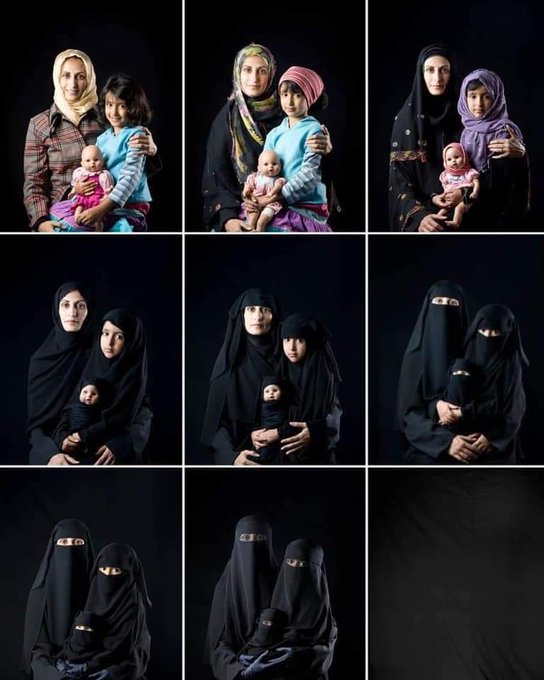Dentro de la animación sociocultural,
lo que más me gusta del mundo es la animación cultural: cómo es la
idiosincrasia de los pueblos: su idioma, origen, folclore, religión.
Obviamente,
entre mis lectorxs hay gente con fe y atea. No pretendo otra cosa que
buscar lo que nos une y nos diferencia, sin obligar. No soy teóloga,
pero si , una persona que busca conocer el porqué de las cosas y hace
preguntas. Aquí se trata de los derechos humanos. Si hablo de algún
gobierno, no es para hacerle publicidad, sino para denunciar que sus
actos rozan el delito de odio. Por eso nunca pongo la biografía de
dictadores, sino la de las víctimas que lo sufrieron.
Within the
sociocultural animation, what I like most about the world is the
cultural animation: how is the idiosyncrasy of the peoples: its
language, origin, folklore, religion.
Obviously, among my readers
there are people with faith and atheid. I do not pretend anything to
look for what unites us and differentiates us, without forcing. I'm not
theologian, but yes, a person who seeks to know the reason for things
and asks questions. Here it is about human rights. If I speak of a
government, it is not to advertise, but to denounce that its actions
brush the crime of hate. That is why I never put the biography of
dictators, but that of the victims who suffered it.
Innerhalb
der soziokulturellen Animation, was ich am meisten an der Welt mag, ist
die kulturelle Animation: Wie ist die Idiosynkrasie der Völker: Seine
Sprache, Herkunft, Folklore, Religion.
Offensichtlich gibt es unter
meinen Lesern Menschen mit Glauben und Atheid. Ich tue nicht so, als
würde ich etwas suchen, um das zu suchen, was uns vereint und uns
unterscheidet, ohne zu zwingen. Ich bin nicht Theologe, aber ja, eine
Person, die den Grund für Dinge wissen möchte, und fragt Fragen. Hier
geht es um Menschenrechte. Wenn ich von einer Regierung spreche, dürfte
es nicht werben, sondern umzurufen, dass seine Handlungen das Verbrechen
des Hasses putzen. Deshalb habe ich die Biografie der Diktatoren nie
gesetzt, sondern die der Opfer, die es litten.
Dans l'animation
socioculturelle, ce que j'aime le plus sur le monde est l'animation
culturelle: comment est l'idiosyncrasie des peuples: sa langue, son
origine, un folklore, une religion.
De toute évidence, parmi mes
lecteurs, il y a des gens de foi et d'athreid. Je ne prétends rien à
chercher ce qui nous unit et nous différencie sans forcer. Je ne suis
pas théologien, mais oui, une personne qui cherche à connaître la raison
des choses et pose des questions. Ici, il s'agit de droits de l'homme.
Si je parle d'un gouvernement, il ne s'agit pas de faire de la
publicité, mais de dénoncer que ses actions brossent le crime de la
haine. C'est pourquoi je n'ai jamais mis la biographie des dictateurs,
mais celle des victimes qui l'ont souffert.
ضمن الرسوم
المتحركة الاجتماعية الثقافية، ما أحب أكثر عن العالم هو الرسوم المتحركة
الثقافية: كيف هي خصوصية الشعوب: لغتها، الأصل، الفولكلور، الدين.
من
الواضح، من بين القراء هناك أشخاص ذوي الإيمان والحمص. أنا لا أدعي أي شيء
للبحث عن ما يوحدنا ويمميكنا، دون إجبار. أنا لست اللاهوتي، ولكن نعم،
الشخص الذي يسعى لمعرفة سبب الأشياء ويطلب الأسئلة. هنا يتعلق الأمر بحقوق
الإنسان. إذا كنت أتحدث عن حكومة، فليس من أجل الإعلان، بل تندد بأن
تصرفاتها تنظف جريمة الكراهية. هذا هو السبب في أنني لم أضع سيرة
الديكتاتوريين أبدا، لكن ذلك من الضحايا الذين عانوا من ذلك.
Sosyo-kültürel
animasyon içinde, dünyanın en çok sevdiğim şey kültürel animasyondur:
Halkların deyiliri nasıldır: Dili, kökenli, folklor, din.
Açıkçası,
okuyucularım arasında inanç ve ateid olan insanlar var. Bizi birleştiren
ve bizi zorlamadan, bizi birleştiren şeyi aramak için bir şey yapmam.
Ben ilahiyat yapmadım, ama evet, şeylerin nedenini bilmeyi ve soru
sormasını isteyen bir kişi. İşte insan hakları hakkında. Bir hükümetten
bahsedersem, reklam vermek değil, eylemlerinin nefret suçunu
fırçaladığını kınamak. Bu yüzden diktatörlerin biyografisini asla
koymadım, ancak acı çeken mağdurlarınki.
All'interno l'animazione
socio-culturale, quello che mi piace di più al mondo è l'animazione
culturale: come è l'idiosincrasia dei popoli: il suo linguaggio,
l'origine, il folklore, la religione.
Ovviamente, tra i miei lettori
ci sono persone con la fede e l'atheid. Non pretendo nulla a cercare ciò
che ci differenzia e ci unisce, senza forzare. Io non sono teologo, ma
sì, una persona che cerca di conoscere la ragione delle cose e pone
domande. Qui si tratta di diritti umani. Se parlo di un governo, non è
per pubblicizzare, ma per denunciare che le sue azioni spazzolare il
reato di odio. È per questo che non ho mai messo la biografia di
dittatori, ma quella delle vittime che hanno sofferto di esso.
Patricia López Muñoz
Técnico Superior en Animación Sociocultural
Técnico Especialista en Inmigración
Técnico Superior en Integración Social









